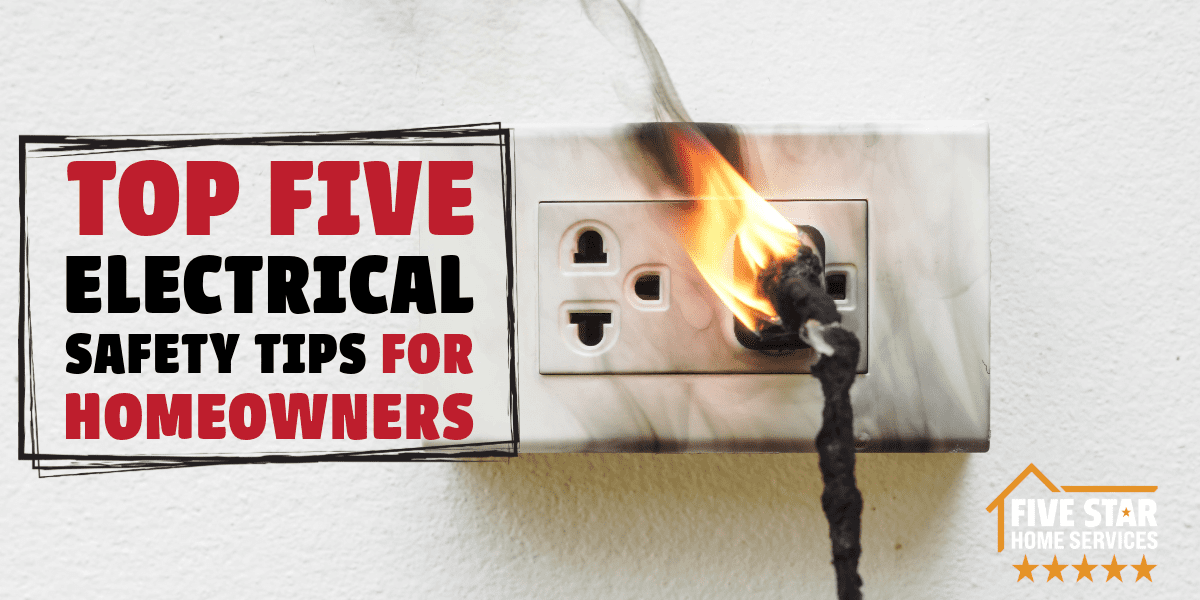Modern conveniences generally revolve around electricity. Without electricity, we would be living at a slower pace, and tasks would seem much more challenging to undertake. After all, it is undoubtedly much more accessible to put a load of clothes into a washer and letting the machine do all the work of agitating the clothes, rinsing them, and eventually, putting them in a dryer– all in less time and effort than it would take to do that same exact task by hand. There’s no doubt that electricity plays a huge beneficial role in our lives, and thus, we must make sure that we understand its accompanying risks. We are already mostly familiar with how electricity and water are dangerous together, and that we have to be careful with electrical appliances that may come in contact with water (e.g., hair dryers in bathrooms). Another safety recommendation is to unplug electrical cords when not in use, to reduce the risk of overheating or a power surge.
Injuries associated with electricity can largely be avoided by heeding the warning signs that may already be present in the home. Electrical injuries cause heat damage to the tissues of the body, and the extent of harm is related to the magnitude of the electrical current and how long one was exposed to it. These injuries include electric shock, electrocution, and electrical burns, all of which affect the internal organs and cause multiple issues such as respiratory failure, cardiac problems or neurological damage. Additionally, electrical fires cause harm to property and affect the individual in the process, sometimes proving to be fatal. In the United States, approximately 24,000 residential electrical fires occur each year, according to the U.S. Fire Administration. Almost 90% of electrical fires are caused by electrical failures, of which the leading origins for home fires are the kitchen, bedroom, and attic/roof.
Warning Signs of an Electrical Problem
- Switch plates or outlet covers that are hot to the touch
- Lights that flicker or dim
- Noticeable sparks
- Circuit breakers that constantly trip or a blown fuse
- Burnt plastic smell
- Buzzing or sizzling sounds
- Plugs that are loosely attached to their receptacles
When we are aware, we can be more attuned to warning signs that may alert us of electrical issues and limit the possibility of contracting injuries or putting ourselves and our loved ones in danger. Having (and using) electricity and enjoying its benefits definitely come with recognizing that safety precautions should be at the forefront.
Top Five Electrical Safety Tips
- Damaged electrical cords need to be replaced or repaired. Electrical cords provide insulation and protection for the live wire they enclose inside. The live wire is a serious danger to anyone near it without this external covering. Frayed, cracked, damaged, worn, or old electrical cords can cause electrocution or fires. Much like electrical tape, PVC tape is only a temporary solution, and it is best to call a professional to evaluate your wiring for a more permanent solution.
- Stop overloading your outlets and keep extension cord use to a minimum. An average outlet is designed to accommodate 20 amps of power. Unfortunately, many individuals do not realize that plugging in multiple items, especially high-powered ones, into a single outlet is dangerous practice. The availability of extension cords has made this all the more convenient to overlook. Thousands of home fires in the US are caused by putting this much strain on the electrical outlet. A power strip may ease this strain, but remember that this just adds to the number of outlets. It does not change the amount of power that goes through the outlet. Extension cords should not be used as a permanent solution, either. If this is the case, you may need to have more outlets installed in your home. As a general rule, it should be one heat-producing appliance per outlet. Also, make sure that major, high-powered appliances are plugged into the wall directly. Additionally, do not plug an extension cord into another one. This increases resistance and heat, causing a fire. If you notice flickering lights or an outlet that is warm to the touch, they may be indicative of an overloaded outlet. Keep an A-B-C-rated fire extinguisher nearby, in case of electrical fires. Remember, never use water to douse electrical fires. It will make matters worse. Water and electricity don’t mix!
- Understand the role of the circuit breaker in your home. A circuit breaker is an electrical switch that prevents an overcurrent from damaging the appliances in your home. If there is a fault detected or an overload of electrical current, the circuit breaker instantly prevents that flow to continue, thereby blocking power supply to the affected area. This is when it is said to have “tripped.” You also have manual control of the circuit breaker to shut off power to a specific area or appliance in situations where you need to be working on it, for instance. It is important to know where your circuit breaker box or electrical panel is located in your home, and know how to turn on/off especially when the need arises. When an entire house has been shut down due to a power outage, bring the power back by turning on the circuit breakers one at a time. Conversely, it would be the same if you need to shut down power in the whole house—turn off each branch switch individually before turning off the main circuit breaker. It is important that you keep your electrical panels dry and free from dust and dirt. Occasionally inspect it, too, for signs of corrosion, faulty wiring, or abnormal buildup of heat. A certified electrician can help you evaluate the condition of your electrical panel or whether it needs to be replaced or updated.
- Guard your children (and pets) from electrical danger. According to recent studies, 20% of electrical injuries happen to children, mostly toddlers and adolescents. They get an electric shock when they stick forks or other metallic objects into electrical sockets (most common for children), chew or bite into an electrical wire (most common incident in pets), or sitting/standing near a source of water that is affected by an electrical current. Cords inside the mouth can also cause burns. Cover all outlets with tamper-resistant plastic inserts that are commonly available for childproofing your home. Install an outlet cover for power strips as well. You can also rearrange furniture so that access to an outlet is out of reach for a child. Check that all wires at home are properly insulated. You can tape cords down and keep them out of reach if they are loose. Similarly, keep heat-producing appliances such as toasters or electric kettles out of reach of young children. For older children, teach them not to yank on electrical cords but to hold the plug at its head, when unplugging carefully.
- Do not attempt to do it yourself. Even a highly skilled do-it-yourself individual or DIYer should recognize the potential danger inherent in electrical systems. At the very least, seek the help of a professional before attempting to install wiring or an electrical appliance. In any case, licensed electricians have the necessary knowledge and skills to perform tasks according to the latest standards and electrical codes. It is also useful to know that with any DIY project that results in damages, you may not be able to file a claim with your home insurance company. Tasks that involve residential wiring has the possibility of exposure to live wires, which a professional electrician is trained to address. Keep in mind that it is better to have a professional evaluate and handle electrical work, especially in these cases:
- Rewiring an electrical system
- Maintenance or servicing of an electrical panel
- Repairing large appliances and their electrical components
- Installing a whole-home surge protector
And an extra tip for you: It is better to err on the side of caution when it comes to issues concerning electricity. Maintenance is key to preventing any accidents or injuries related to electricity. Every year, have a licensed electrician perform an inspection on your electrical system especially if your home is older. They can evaluate the necessary fixtures or updates needed to ensure the overall safety of your home and its occupants. At Five Star Home Services, we have expert licensed electricians that can handle all kinds of electrical repairs and installations. If you need to have evaluations or inspections done, trust in our highly rated, expert, and dependable electricians to do the job for you. Call Five Star Home Services today at (833) 405-8009 for a free estimate or for any questions.


